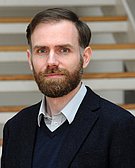
Your additional qualification for studying psychology
Integrated Curriculum for Anthroposophic Psychology (IBAP)
What is the Integrated Curriculum for Anthroposophic Psychology?
The Faculty of Health at Witten/Herdecke University (UW/H) offers a special additional qualification in anthroposophical psychology. The Integrated Curriculum for Anthroposophic Psychology (IBAP) is a voluntary additional course that is primarily aimed at students of psychology degree programmes at the UW/H. Participation is certified independently of the Bachelor's degree certificate.
Psychological phenomena can be seen in human behaviour, experience and cognition. For example, empathy is noticeable in an increased devotion to another person and is shown both in outwardly visible physical behaviour and in the inner attitude towards others. It can be experienced by the empathising person in a specific inner mood and attitude towards the other person. It also allows us to gain insights into ourselves, the other person and the effects of attention and affection, for example.
In order to further develop these research methods and contents, we have found inspiration in anthroposophical spiritual science, which we take up in our teaching and research.
Integrated anthroposophical accompanying studies
What is an integrated accompanying study programme?
An integrated complementary study programme is a voluntary additional offer for students who want to look at topics from a broader perspective and critically examine them.
Witten/Herdecke University offers two anthroposophical accompanying programmes: The Integrated Curriculum for Anthroposophic Medicine (IBAM) is primarily aimed at medicine students (Medicine model degree programme), while the Integrated Curriculum for Anthroposophic Psychology (IBAP) is primarily aimed at students on the Bachelor's degree programme in Psychology (B. Sc.) programme and the Master's degree programme Psychology specialising in Clinical Psychology and Psychotherapy (M. Sc.) programme.
What is meant by anthroposophic medicine and anthroposophic psychology?
Anthroposophic medicine and anthroposophic psychology are spiritual-scientific supplements to classical medicine and classical psychology. They are characterised by a pronounced focus on the patient.
Not only physical factors play a role in the diagnosis and treatment of illnesses. Mental and spiritual aspects (including perception, thinking, feeling and willpower) are also important. In anthroposophy, the sick person can and should utilise their individual capabilities (e.g. resilience, inner strength and will) to actively shape the therapy and healing process.
Forms of therapy such as eurythmy therapy (an artistic movement therapy), biography work, external applications, natural remedies and various art and body therapies support classical medicine.
Research
Neuroscientific research in psychology has made great progress in recent years, particularly in the investigation of the neuronal basis of psychological processes such as consciousness, emotions and cognition. However, psychological phenomena do not only consist of neuronal or biological aspects, but also of what we experience qualitatively, for example through the question "what does consciousness feel like". Conceptual cognition also plays a role, for example through the question "what insights are made possible for me through conscious reflection - and how do I arrive at these insights". The aim is to examine the content and methods for researching the experiential and cognitive aspects of psychological events in more detail.
In addition to the biological view of the human being, the spiritual side is also included, i.e. the ability to experience (soul) and the ability to cognise (mind). This more comprehensive view is particularly important in practical medicine and psychotherapy, where it has already been adopted on various occasions. It is not only about physical symptoms, but also about what patients experience and what insights they gain in dealing with health and illness.
This expanded approach enriches the research specialisation "Integrative and Personalised Healthcare", as it is represented at the Faculty of Health at Witten/Herdecke University. Our aim is to shed light on central basic psychological concepts such as attention, memory, intention, the self and consciousness from the perspective of an expanded understanding of psychology in the humanities.
The IBAP team

Dr.
Jonas Raggatz
Researcher
Faculty of Health (School of Medicine) | Integrated Curriculum for Anthroposophic Psychology (IBAP)
Alfred-Herrhausen-Straße 50
58455 Witten
Univ.-Prof.
Ulrich Weger, Ph. D.
Chair holder
Faculty of Health (School of Psychology and Psychotherapy) | Chair of Fundamentals in Psychology
Alfred-Herrhausen-Straße 50
58455 WittenRoom number: E.070

Prof. Dr. med.
Friedrich Edelhäuser
Management
Faculty of Health (School of Medicine) | Integrated Curriculum for Anthroposophic Psychology (IBAP)
Gerhard-Kienle-Weg 4
58313 HerdeckeRoom number: Haus C / EG

Lara Stanke
Employee
Faculty of Health (School of Medicine) | Integrated Curriculum for Anthroposophic Psychology (IBAP)
Alfred-Herrhausen-Straße 50
58455 WittenRoom number: D. 473

M.Sc.
Lara Vucemilovic
Employee
Faculty of Health (School of Medicine) | Integrated Curriculum for Anthroposophic Psychology (IBAP)
Gerhard-Kienle-Weg 4
58313 Herdecke
Prof. Dr.
Terje Sparby
Employee
Faculty of Health (School of Medicine) | Integrated Curriculum for Anthroposophic Psychology (IBAP)
Gerhard-Kienle-Weg 4
58313 HerdeckeRoom number: D.473